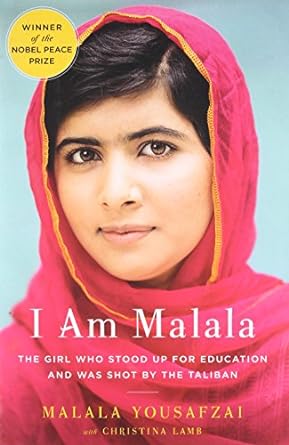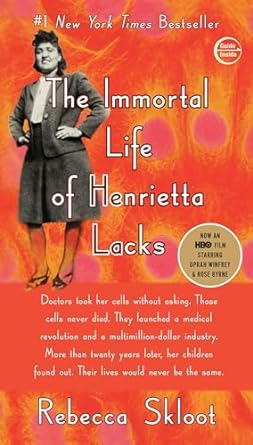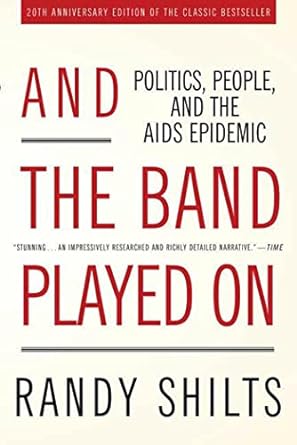Book Club At The Center

The Office of Access and Compliance hosts a Book Club At The Center throughout the year to stimulate discussions from a collective mixture of worldviews that honor beliefs, values, expectations, experiences, and inclusion. Participation is fluid to account for varying schedules and subject matter interests. The book club is open to all students, trainees, staff, and faculty.
Prior to each discussion, our office holds a random drawing to give away 4 free copies of the upcoming selection; a link will be sent out by email to enter the drawing. You are encouraged to attend even if you do not have the opportunity to finish the book prior to the discussion.
| BOOK | SUMMARY | REGISTER | WINNERS ANNOUNCED | DISCUSSION DATE |
|
Take My Hand by Dolen Perkins-Valdez |
Montgomery, Alabama 1973. Fresh out of nursing school, Civil Townsend has big plans to make a difference,
especially in her African American community. At the Montgomery Family Planning Clinic,
she intends to help women make their own choices for their lives and bodies. |
August 5, 2024 | August 16, 2024 |
September 25, 2024 |
|
Malala Yousafzai, Chartina Lamb (Primary Contributor) |
I come from a country that was created at midnight. When I almost died it was just after midday. When the Taliban took control of the Swat Valley in Pakistan, one girl spoke out. Malala Yousafzai refused to be silenced and fought for her right to an education. On Tuesday, October 9, 2012, when she was fifteen, she almost paid the ultimate price. She was shot in the head at point-blank range while riding the bus home from school, and few expected her to survive. Instead, Malala's miraculous recovery has taken her on an extraordinary journey from a remote valley in northern Pakistan to the halls of the United Nations in New York. At sixteen, she has become a global symbol of peaceful protest and the youngest-ever Nobel Peace Prize laureate. I Am Malala is the remarkable tale of a family uprooted by global terrorism, of the fight for girls' education, of a father who, himself a school owner, championed and encouraged his daughter to write and attend school, and of brave parents who have a fierce love for their daughter in a society that prizes sons. |
September 30, 2024 | October 11, 2024 | November 20, 2024 |
|
The Immortal Life of Henrietta Lacks by Rebecca Skloot |
Her name was Henrietta Lacks, but scientists know her as HeLa. She was a poor Southern tobacco farmer who worked the same land as her enslaved ancestors, yet her cells—taken without her knowledge—became one of the most important tools in medicine. The first “immortal” human cells grown in culture, they are still alive today, though she has been dead for more than sixty years. If you could pile all HeLa cells ever grown onto a scale, they’d weigh more than 50 million metric tons—as much as a hundred Empire State Buildings. HeLa cells were vital for developing the polio vaccine; uncovered secrets of cancer, viruses, and the atom bomb’s effects; helped lead to important advances like in vitro fertilization, cloning, and gene mapping; and have been bought and sold by the billions. Yet Henrietta Lacks remains virtually unknown, buried in an unmarked grave. Now Rebecca Skloot takes us on an extraordinary journey, from the “colored” ward of Johns Hopkins Hospital in the 1950s to stark white laboratories with freezers full of HeLa cells; from Henrietta’s small, dying hometown of Clover, Virginia — a land of wooden quarters for enslaved people, faith healings, and voodoo — to East Baltimore today, where her children and grandchildren live and struggle with the legacy of her cells. Henrietta’s family did not learn of her “immortality” until more than twenty years after her death, when scientists investigating HeLa began using her husband and children in research without informed consent. And though the cells had launched a multimillion-dollar industry that sells human biological materials, her family never saw any of the profits. As Rebecca Skloot so brilliantly shows, the story of the Lacks family — past and present — is inextricably connected to the history of experimentation on African Americans, the birth of bioethics, and the legal battles over whether we control the stuff we are made of. Over the decade it took to uncover this story, Rebecca became enmeshed in the lives of the Lacks family—especially Henrietta’s daughter Deborah, who was devastated to learn about her mother’s cells. She was consumed with questions: Had scientists cloned her mother? Did it hurt her when researchers infected her cells with viruses and shot them into space? What happened to her sister, Elsie, who died in a mental institution at the age of fifteen? And if her mother was so important to medicine, why couldn’t her children afford health insurance? Intimate in feeling, astonishing in scope, and impossible to put down, The Immortal Life of Henrietta Lacks captures the beauty and drama of scientific discovery, as well as its human consequences. |
January 6, 2025 | January 20, 2025 | February 26, 2025 |
|
And the Band Played On: Politics, People, and the AIDS Epidemic by Randy Shilts, William Greider (Introduction)
|
By the time Rock Hudson's death in 1985 alerted all America to the danger of the AIDS epidemic, the disease had spread across the nation, killing thousands of people and emerging as the greatest health crisis of the 20th century. America faced a troubling question: What happened? How was this epidemic allowed to spread so far before it was taken seriously? In answering these questions, Shilts weaves the disparate threads into a coherent story, pinning down every evasion and contradiction at the highest levels of the medical, political, and media establishments. Shilts shows that the epidemic spread wildly because the federal government put budget ahead of the nation's welfare; health authorities placed political expediency before the public health; and scientists were often more concerned with international prestige than saving lives. Against this backdrop, Shilts tells the heroic stories of individuals in science and politics, public health and the gay community, who struggled to alert the nation to the enormity of the danger it faced. And the Band Played On is both a tribute to these heroic people and a stinging indictment of the institutions that failed the nation so badly. |
March 3, 2025 | March 17, 2025 | April 30, 2025 |




